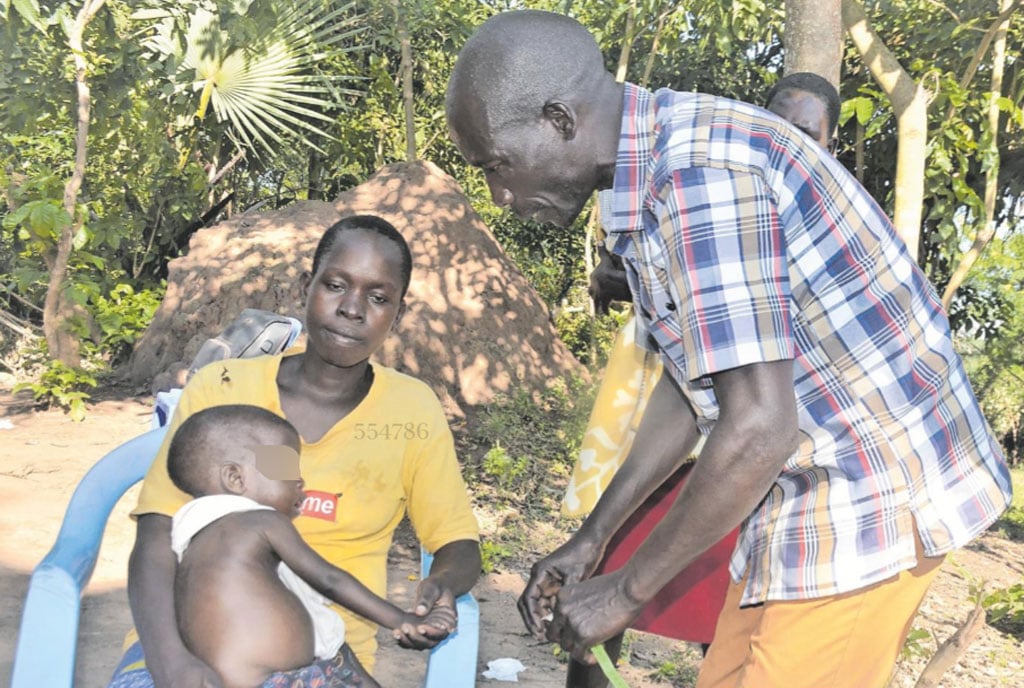Govt renews drive to address teenage pregnancy

Teenage girls participate in bicycle riding competition during the launch of BOLD adolescent health campaign in Namayingo on November 4. Photo | Tonny Abet
What you need to know:
- Dr Charles Olaro, the Director of Curative Services at the Ministry, said teenage pregnancy is having a huge impact on the health, social and economic well-being of young mothers.
The Ministry of Health has launched the "Bold Adolescent Health Campaign" to address the high rate of teenage pregnancy which has stagnated at 24 per cent.
This initiative, according to the Ministry officials and development partners, involves several engagements with young people and communities to empower adolescents with knowledge and skills to make healthy decisions about their sexual and reproductive health. It will also promote the adherence to right social practices and behaviours among young people.
The campaign launched in Namayingo on Monday (November 4), was developed by the government in collaboration with development partners such as the United States Agency for International Development (USAID) and the United Nations Population Fund (UNFPA).
Dr Charles Olaro, the Director of Curative Services at the Ministry, who was the chief guest at the launch, said teenage pregnancy is having a huge impact on the health, social and economic well-being of young mothers.
“Teenage mothers are more likely to suffer adverse pregnancy outcomes including death because they are not biologically and psychologically ready for childbirth, and they have limited or no access to quality maternity care because of social and economic disadvantages," he said.
"These complications include obstructed labour and its sequelae, pregnancy-related hypertension, anemia, low birth weight, fetal growth retardation, and psychological trauma all leading to high infant and maternal morbidity and mortality rate,” he added.
Ms Jessica Healey, the USAID Uganda Director for Health and HIV, said the US government would continue to support the BOLD campaign and the related activities to address the issue of teenage pregnancy.
"It will require a lot of dialogue in the communities and we will support this. we will support the Ministry of Health's community health workforce. We believe village health teams and community health workers can bring services closer to people to where they need to access them," she said.
"We need to continue our support for contraceptives to plan in time for their pregnancy. it's time to become angry (about high rates of teenage pregnancy). I encourage you (young people) to be bold, take bold steps, and watch out for your classmates. Teachers should create that
environment where children feel safe to come to you and get help," she added.
Causes of teenage pregnancy
Speaking during the launch, the Prime Minister of Bukooli Chiefdom, Mr Kaawo Kawere Naay, blamed the high rates of teenage pregnancy on poverty and social norms.
"Namayingo District has a remarkably high level of teenage pregnancy (at 26 per cent) due to its historical, cultural and economic challenges," he said.
Teenage pregnancy means conceiving at the ages between ten to nineteen. Teen means youngster as Teenage means young age.
"Causes of teenage pregnancy include poverty coupled with a belief that girls are a source of wealth. Primitive purported cultural activities like using Kanyamas and fundraisings for funerals," the cultural leader added.
Mr Mathias Mangeni, the assistant District Health Officer for Namayingo said there is a need to engage young people in developing solutions to issues that affect them such as teenage pregnancy.
He said among the interventions to prevent teenage pregnancy is enabling access to sexual and reproductive health information and services like contraceptives for those who are not abstaining.
Dr Rachel Beyagira, the assistant Commissioner for Adolescent and School Health at the Health Ministry noted that they would put young people at the centre of the campaign.
"It all began in May 2024 and progressed to August, when school health campaigns were launched with the goal of social and behaviour change. And even in this communal Social and Behavioral change -SBC campaign, the intent remains sound—to involve adolescents in taking centre stage in influencing their communities and leaders to create a more enabling environment for their fellow adolescent girls, especially those who are pregnant or mothers," she said.




